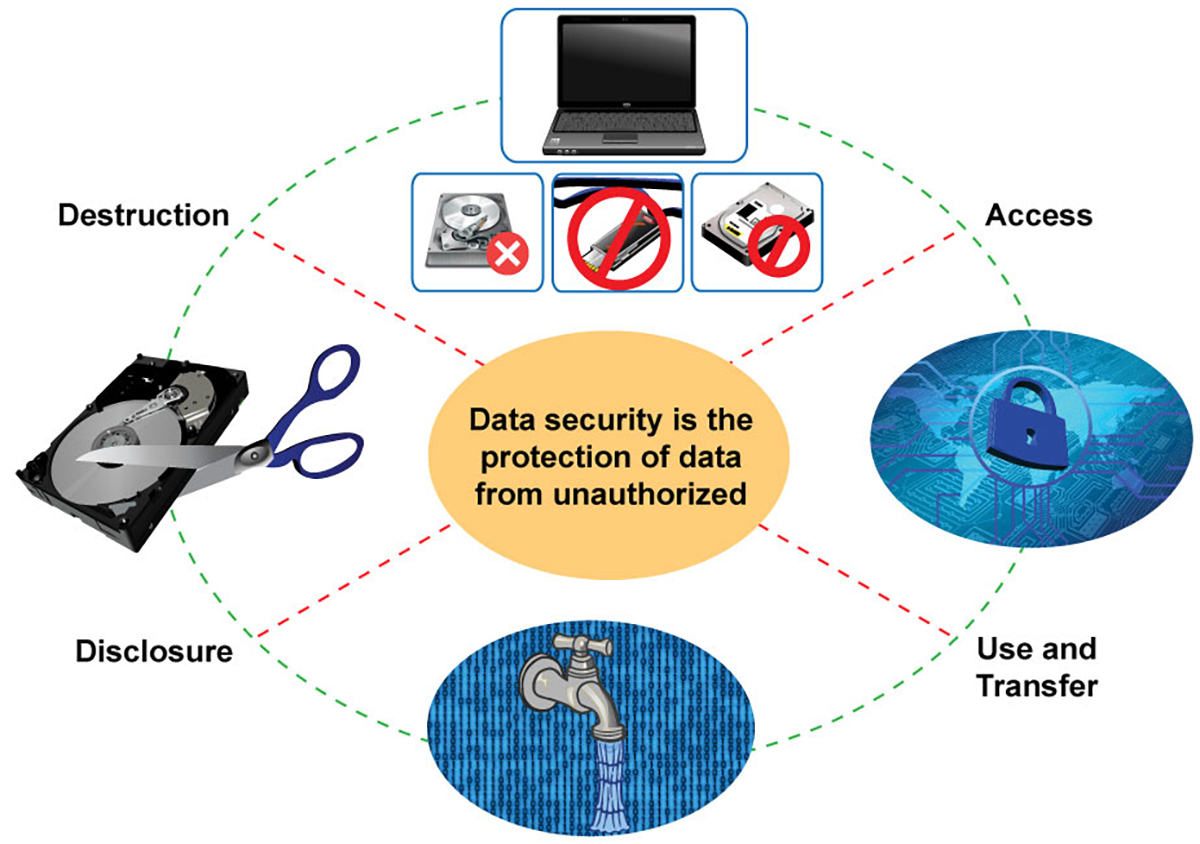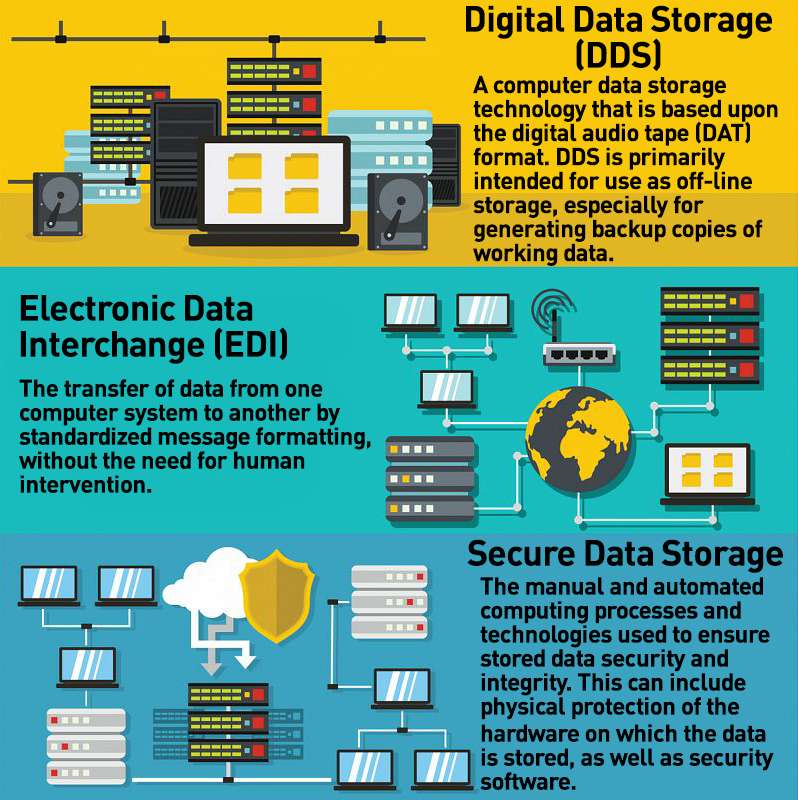The Important Nature of Data Destruction in Upholding Computer Protection Providers and Protecting Versus Unauthorized Accessibility
In an era where data breaches and identity theft are increasingly widespread, the value of reliable information destruction can not be overstated. Organizations has to recognize that the failing to correctly take care of sensitive information postures not only legal and financial risks yet also a prospective erosion of client count on. Various methods, from data cleaning to physical devastation, act as crucial safeguards versus unauthorized accessibility. However, understanding the effects of data damage techniques and compliance with policies increases necessary concerns regarding the competence of present approaches and their long-lasting feasibility when faced with progressing dangers.
Significance of Data Devastation
In a progressively electronic world, the importance of information damage can not be overemphasized. As companies amass huge amounts of sensitive info, the possible repercussions of stopping working to effectively take care of and get rid of of that information become progressively severe. Information breaches, identification burglary, and company espionage position substantial threats, underscoring the necessity of efficient information devastation techniques.

Moreover, as modern technology develops, so also do the techniques through which malicious actors look for to exploit sensitive details. Organizations has to remain cautious and proactive in their data devastation strategies to protect versus these advancing threats. By focusing on data devastation, business not just protect their possessions yet additionally foster count on among stakeholders and customers, demonstrating a commitment to accountable information monitoring and safety and security methods.
Approaches of Effective Information Destruction
To make sure the full and irreversible destruction of sensitive information, organizations can utilize a range of reliable approaches tailored to their particular needs. One of the most usual methods is data wiping, which includes utilizing specialized software program to overwrite existing information multiple times, making recovery essentially difficult. This is particularly valuable for hard disks and solid-state drives, where standard removal methods are poor.
One more reliable technique is degaussing, which utilizes solid magnetic fields to interrupt the magnetic domains on storage space media, making the data irretrievable. This technique is particularly fit for magnetic storage tools, such as tape drives and hard disks.
Physical destruction is also a viable option, entailing the shredding, squashing, or incineration of storage space devices. This approach guarantees that information can not be recuperated, making it excellent for companies handling very sensitive details.

Conformity With Data Defense Laws
Organizations have to not only concentrate on efficient information destruction approaches but likewise make sure compliance with information defense regulations that govern exactly how sensitive details is managed and gotten rid of. Sticking to these guidelines is essential for keeping and safeguarding individual information client depend on. Laws such as the General Information Security Regulation (GDPR) in the European Union and the Medical Insurance Transportability and Liability Act (HIPAA) in the United States impose stringent guidelines on information monitoring, that include needs for the protected disposal of sensitive info.
To achieve compliance, organizations need to carry out comprehensive information destruction policies that line up with these legal structures. This includes identifying data that needs devastation, developing procedures for secure methodsâEUR" such as shredding physical media or utilizing software program that fulfills sector criteria for data wipingâEUR" and keeping in-depth documents of damage activities. Normal audits needs to be conducted to make sure adherence to these plans and to identify any prospective locations for improvement.
Failing to follow data protection laws can cause significant lawful ramifications, consisting of large fines and damages to an organization's reputation. Integrating conformity into information destruction methods is not just a lawful responsibility yet likewise Go Here a crucial part of a robust info protection technique.
Effects of Poor Data Handling
Poor information handling can cause severe consequences that prolong past prompt operational obstacles. Organizations might face significant economic losses due to data violations, which frequently result in pricey remediation initiatives, legal costs, and governing fines. These financial ramifications can impede and stress resources growth, inevitably affecting a company's lower line.
Furthermore, inadequate data handling can drastically harm an organization's track record. Companions, customers, and stakeholders may shed trust fund in an entity that stops working to shield delicate information, resulting in decreased client loyalty and possible loss of service opportunities. This erosion of trust can take years to restore, if it can be recovered in any way.
In addition, companies can encounter legal ramifications occurring from non-compliance with data defense laws. Such offenses might lead to examinations and charges, intensifying the monetary concern and additional staining the company's picture.
In the world of cybersecurity, insufficient information administration methods can create susceptabilities that make systems a lot more vulnerable to unapproved accessibility and cyberattacks. Eventually, these consequences underscore the crucial importance of applying durable data handling treatments to protect delicate details and preserve organizational honesty.
Ideal Practices for Secure Data Disposal


First of all, information need to be classified according to its sensitivity. Sensitive information needs a lot more strenuous disposal approaches, such as shredding physical documents and utilizing advanced software application for digital data wiping. Utilizing licensed information damage solutions makes certain conformity with industry regulations and standards.
Secondly, organizations should implement a data disposal policy that mandates normal audits. This plan needs to lay out the treatments for information retention and damage, making sure that outdated data is gotten rid of immediately and safely. Training employees on these methods is vital to fostering a society of protection understanding.
Finally, maintaining detailed documents of disposed information enhances accountability and gives a clear audit path. This paperwork should consist of the sort of data damaged, the technique used, and the day of disposal.
Verdict
Embracing durable methods such as data cleaning, degaussing, and physical devastation, together with conformity with regulations like GDPR and HIPAA, is necessary for safeguarding sensitive info. Disregarding proper data disposal methods can lead to extreme consequences, including data violations and lawful effects.
In an era where data breaches and identification burglary are significantly widespread, the significance of effective information devastation can not be overstated. data destruction. Data breaches, identification theft, and business reconnaissance posture significant threats, highlighting the requirement of reliable information devastation techniques
Conformity with laws such as GDPR and HIPAA requireds that companies apply rigorous information defense steps, including the protected damage of data at the end of its lifecycle.
By prioritizing data destruction, firms not just shield their properties yet likewise foster depend on amongst stakeholders and clients, demonstrating a commitment to responsible my response information monitoring and security practices.
Organizations have to not just concentrate on efficient data destruction methods but additionally make certain conformity with data protection regulations that control exactly how sensitive information is taken care of and disposed of.
Comments on “Comprehending the Function of Data Destruction in Strengthening Cyber Security Defenses”